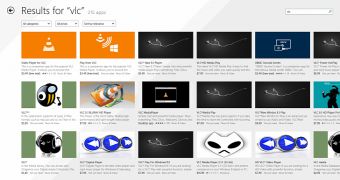Microsoft has until now worked really hard to make more apps available to Windows 8.1 users and convince developers to port their apps to the new platform, but the company really needs to tackle the issue of spam apps.
In the last few months, several apps trying to capitalize on the growing popularity of software that is yet to arrive on Windows 8 reached the Windows Store in an attempt to steal people’s money and trick them into believing that they are actually downloading the real deal.
It turns out that Redmond is finally ready to take action, as a recent case involving clones of popular games that were published in the Windows Store caught everyone’s attention.
Microsoft has issued a statement to say that it won’t tolerate apps infringing content, so all entries that do not respect the guidelines will be removed as quickly as possible.
“Microsoft respects the intellectual property rights of third parties and we ask that developers who distribute apps via our Store ensure their apps do not infringe the intellectual property of others,” said the company according to VG247.
“Microsoft provides an easy online process for developers to notify us if they believe their works are being infringed. Upon receipt of a complete notice, we act expeditiously to review the complaint and remove the app in appropriate circumstances.”
What’s harder to understand is the reason why Microsoft approves this apps to be listed in the Windows Store in the first place, even though the company has already pledged to focus more on quality rather than quantity.
At this point, there are nearly 145,000 apps available in the Windows Store, most of which offer compatibility with both desktops and tablets, and figures are very likely to grow as Microsoft’s modern operating systems gain traction.

 14 DAY TRIAL //
14 DAY TRIAL //